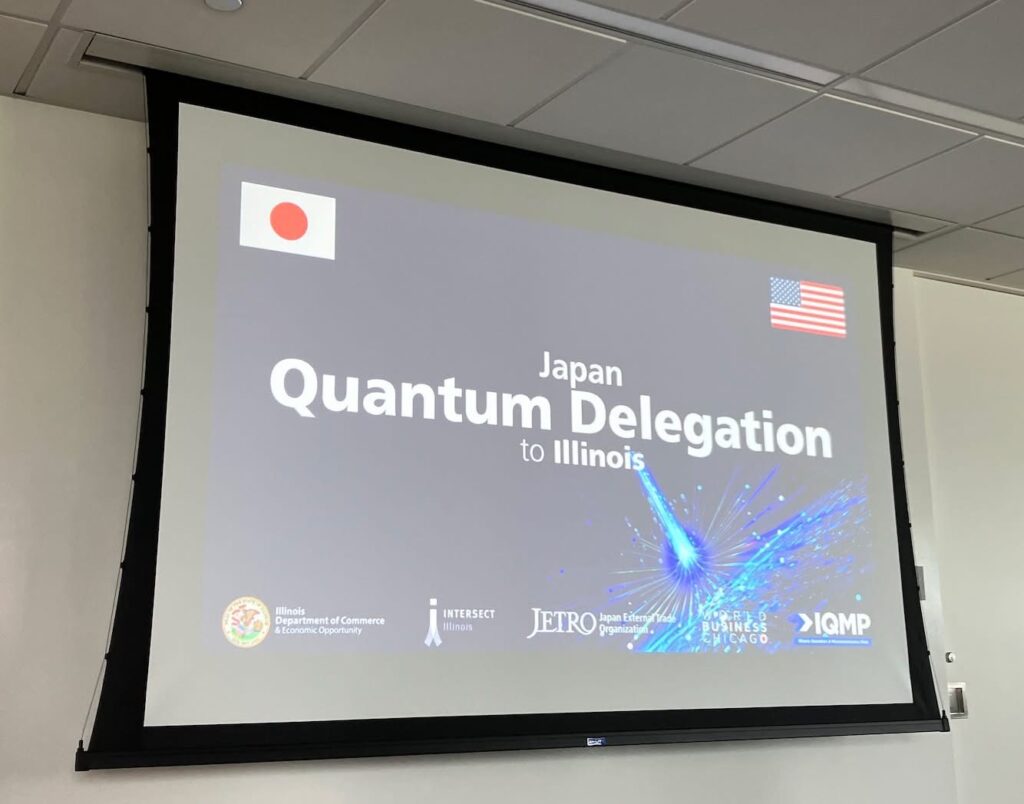
From June 8 to 10, 2025, the Japan External Trade Organization (JETRO) hosted the “U.S. Quantum Mission – Illinois Edition” in Chicago and its surrounding areas. Approximately 30 organizations from Japan—including companies, research institutions, and government-affiliated bodies—participated in the mission. The goal was to observe cutting-edge quantum technology initiatives in the United States and to deepen Japan-U.S. collaboration through exchanges with local researchers and entrepreneurs.
The mission commenced with a welcome reception hosted by World Business Chicago (WBC) at a local restaurant in downtown Chicago. WBC, the city’s official economic development agency, is a public-private nonprofit organization dedicated to attracting businesses, creating jobs, and promoting innovation to establish Chicago as a leading global business hub. The reception featured lively discussions among participants.
On the second day, lectures were held at the Polsky Center at the University of Chicago, covering the local business environment and policy trends in the quantum sector. Participants then visited several quantum startups and research institutions in Chicago, including Hyde Park Labs, PsiQuantum, qBraid, and Infleqtion. Each organization provided insights into their proprietary quantum technologies, R&D progress, and potential future applications.
The final day featured a visit to Argonne National Laboratory, located in the suburbs of Chicago. Established in 1946, Argonne conducts a wide range of advanced research, including quantum science, offering participants a valuable opportunity to witness its cutting-edge work. In the afternoon, the group visited quantum and hard-tech startups such as EeroQ and mHub. At mHub, the “J-Bridge” event was held, featuring pitch presentations and networking sessions between leading Japanese and American companies.
During the J-Bridge event, four Japanese companies and five Chicago-based startups showcased their quantum-related technologies. Presentations included quantum cryptography by Quantumdata, quantum electrodynamics by Nanofiber Quantum Technologies, advanced ceramics applications by Kyocera, and medical research by the National Cancer Center Hospital East. On the U.S. side, notable companies such as qBraid, Infleqtion, and MemQ introduced their latest innovations in photonic qubits, neutral atom systems, and next-generation semiconductors. The reception that followed facilitated active discussions on future collaboration opportunities.
This U.S. Quantum Mission marked a significant step toward strengthening international cooperation in the quantum field. Participating organizations, including Q-STAR members, plan to leverage the insights and networks gained through the mission to pursue joint research, business development, and policy proposals. The quantum ecosystem centered in Illinois is expected to attract increasing global attention in the years ahead.
